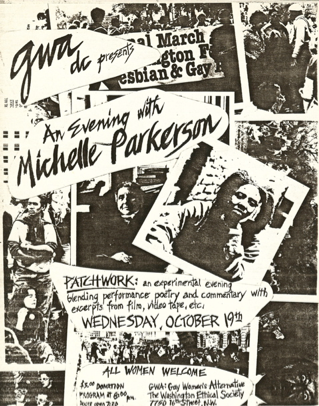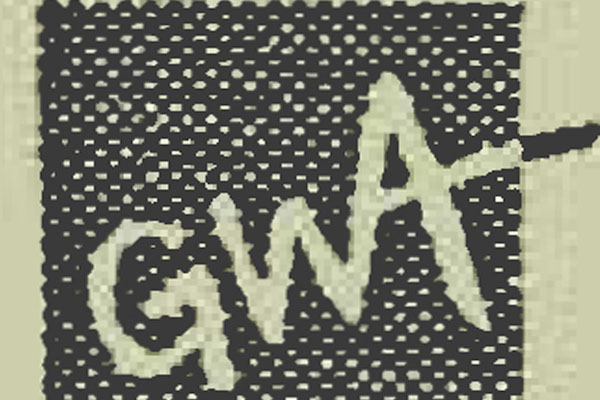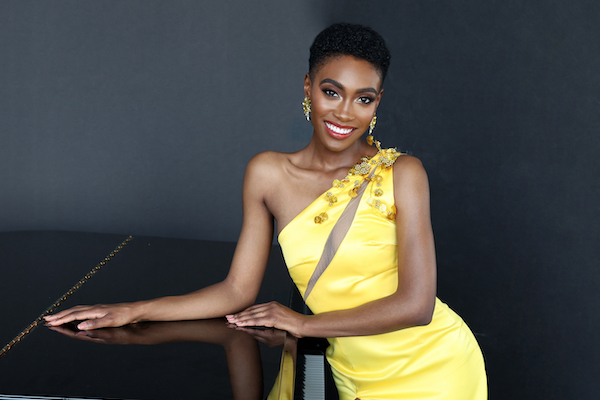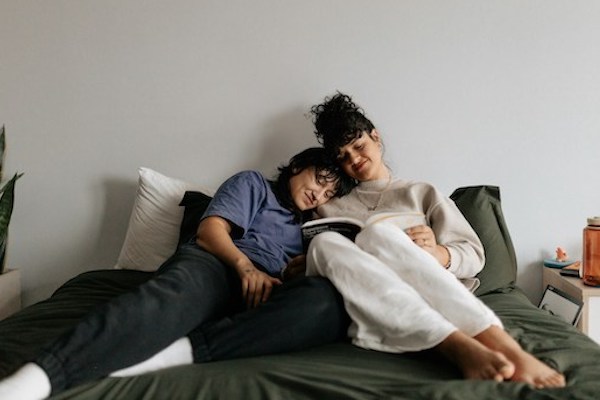
PHASEFEST
September 11, 2012
NOVA Dynamic Lesbians Happy Hour
September 28, 2012Jeanette Paroly discusses a need for a new Gay Women’s Alternative (GWA)
Since the early 2000s, lesbian D.C. leaders have created both online and offline community spaces for LGBT people to gather and socialize in the city, such as PhatGirlChic.com, WhereTheGirlsGo.com, LezGetTogether.com. The creators of these sites sought to conquer existing disparities between various female identified lesbian and queer groups to create a “common ground” for socialization. Despite the efforts, many new city transplants still find it hard to connect with others in the LGBT community. The Gay Women’s Alternative (GWA), a defunct non-profit lesbian community organization that existed in D.C. between 1980 and 1993, was able to create this common ground. The GWA was designed to bring women of all ages and backgrounds together in a safe space to educate and enrich the cultural, intellectual, and social lives of lesbians of the Washington D.C. Metro area.
The GWA met every Wednesday night at the Washington Ethical Society near Silver Spring, Maryland. Some of the weekly programs included talks such as “Lesbian Couples: How Different are We?” and “Organizing Your Finances for Success.” Speakers included the famous black poet Audre Lorde, artist Joan E. Biren, and the famous television journalist Maureen Bunyan. In this discussion, Jeanette Paroly (60), past board member of the GWA, Mautner Project, and Task Force, discusses the need for a strong local lesbian and bisexual organization to take the lead and teach future generations how to create successful communities, in addition to finding a way to include all women of color, age and socioeconomic groups.
TAGG: When did you first hear about the GWA, and how did you get involved?
JP: Well, the GWA started in 1980, I just heard about it and I went to the first meeting. It was a nice mixture of age, although I don’t think we were successful in really reaching women of color. We got incredible people to speak, we really did, and I think that is what really drew people in. We met at the Washington Ethical Society on 16th Street, so it wasn’t downtown; it was easy to get to no matter where you lived. When you first came it was about an hour of presentation and then about an hour of socializing, so it gave people something to talk about. When you have something to talk about, it allows for interacting. So it was a really nice way for women of every variation and theme to get together. It was a Wednesday evening, no big deal. We had nothing to do anyway.
How was privacy handled? Was everyone out of the closet?
In terms of the board, the women that got involved were pretty comfortable with their sexuality and were pretty much out or they wouldn’t have gotten involved. When I was president of the Board I decided that we were going to be a little more radical there. A little more uncomfortable, so I proposed to have a night of lesbian porn. Well, everyone was saying, “Are you out of your mind?! People are going to go nuts!” I felt like it wasn’t an issue. As if women do not respond to porn. Hello! Now, these were not films that were made for straight men. So I told the board, “I’ll tell you what. We are going to have to pre-screen the films before we show them, so we will have to have two Sundays where we watch the films. Now are you interested?” And then all of the sudden everyone was saying, “That’s a great idea!” So it forced the issue of lesbian sexuality, and what does that mean? I really think that GWA really was a place where everybody could come and feel safe arguing their position, because everyone was welcome.

An early GWA flyer
Did the GWA have any fun games?
We had the dating game, the lesbian dating game. An individual who volunteered and was single would sit with three women hidden behind a screen and ask each of them three questions and see how they answered. She then got to choose one of the three women with whom to go out on a date for which we paid. So we did fun things, too!
How did the GWA get funding?
Our pockets. But it wasn’t that expensive because there was a kitchen downstairs in the Ethical Society, and whoever was in charge that night dragged in the soda. And if we were not chopping up vegetables for the meeting in our home, we were doing it in that kitchen. Later what happened, I believe, is that the board members didn’t want to do that kind of work, so they would get platters and it got expensive. There was also a suggested donation, which basically covered the food, but we also had to pay increasing rent to the Ethical Society, so it was becoming more expensive to run.
Do you miss the GWA?
It was the only place at the time where you could go, listen to something that was either fun or intelligent, something of interest, and then just hang out and socialize. It started at 7:30 to 8 p.m., and by 10-ish we were cleaning up. I think it was necessary because there was no middle ground, and it involved older and younger women. If there were a place like that now, that would be great. But there isn’t any place like that presently; it seems like more and more lesbians and bisexuals are moving further and further out into the suburbs. I think that women felt it was necessary because it was the only place they could go where there was a viable way to be social, could talk to each other, and it was a really nice comfortable way to meet others.
What political events occurred in the 1980s, and how did they affect the GWA?
Being in D.C., one of the biggest employers is the government. Depending on security clearance, as long as you are/were out and honest it was/is okay. But knowing people that went through clearances, they had to prove they were out to everybody, and if they couldn’t prove this they didn’t get clearance. So that was an important political and personal issue. If someone asked me whether they should come out, I might say no depending on the circumstances. I might ask them, “Why are you coming out? Are doing it for you? Wait until you know what the possibilities are.” So my answer would not always be yes. If you are a civilian working for the Pentagon, do you want to come out there? Well, things have recently changed, but back then, perhaps no. Nobody at that time, at GWA, made any judgment about anyone, and I think it was the only place really, that everybody was welcome. We really tried to provide presentations that opened up doors to allow for discussions and for questions to be asked.
It seems like most of the presentations related to real-life lesbian experiences.
Well, the board members were real live lesbians and we also had connections through all these different people we each knew. I think what happened over time is that the people on the board didn’t have the same connections, so it was harder to get people on the calendar as speakers.
How do you get a lesbian organization to remain inclusive, yet also specific?
Urvashi Vaid, wrote a book about a need for crossing bridges called Virtual Equality. Crossing bridges and creating new ones was how I saw it. I felt it then, and I’ve tried to continue to do so in my way of being involved in different communities over the years. However, when I look back, that was the one organization that I wish still existed because you don’t know where to go out, and you don’t know what your friends are doing. If you really want the younger ones to learn, with the wonder of the world they have now, even though it’s still limited, how do you teach, how do you pass on, and have people embrace it? To know the past, to know the present and to not repeat the past but create a healthy present and future, that’s the lesson, right? When I think about it, a place like the GWA would be a place to do that. Where you have topics bring people in to include all ages, women of color and cultures, lesbian and bisexuals, and you would have different topics and presenters that would add to the group diversity.
Do you have any advice for women today that are trying to run successful organizations?
If you want people to come, and be involved, use the local papers—they are all over the place—and the ones out in Virginia, Maryland, and D.C., The Washington Post, and the Blade, so these different communities can see it. You have to have a reason for people to come. If you are getting presenters that support and represent a wide variety of audiences, you are going to get a variety of people to attend. I would also go back to the understanding that you are not going to be making any money, okay? It will probably cost you money, especially at the beginning. That the sole purpose is to make it a safe place that is purely non-judgmental about who you are, where you come from, what you are about. Also, have a topic that brings them in, and then allows discussion among all, crossing boundaries. In order to do that, you need presenters that are young and politically active, and you need older women who have other things to talk about. I would also state as the mission statement: “to bring lesbians, bisexuals, and/or women identified women in a space that is safe as a diverse group, a place to become educated and to share and to be social.” I would keep it as simple as possible, and I really think I would pick a name that doesn’t create exclusion.
Any final thoughts?
I just recently went to the Mautner project Gala [Paroly was on the first Board of Mautner Project] and I was really glad I went. There were more than 1000 women in the room, all ages, all dressed, and I looked around and I felt proud. With GWA, I am really proud to have been a part of it. It somehow grew. It was a place for women to grow.
Jeanette Paroly, Ph.D. has been a licensed professional counselor in the DC area for over thirty years, with one specialty including understanding and working with the special needs of the Lesbian/bisexual population, as individuals and couples, in addition to ongoing involvement and support of this community. More information about the GWA is available through the Rainbow History Project. If you were a part of the GWA and have more thoughts, please contact Kelsey Brannan at kels [dot] bran [at] gmail [dot] com to share your story.





